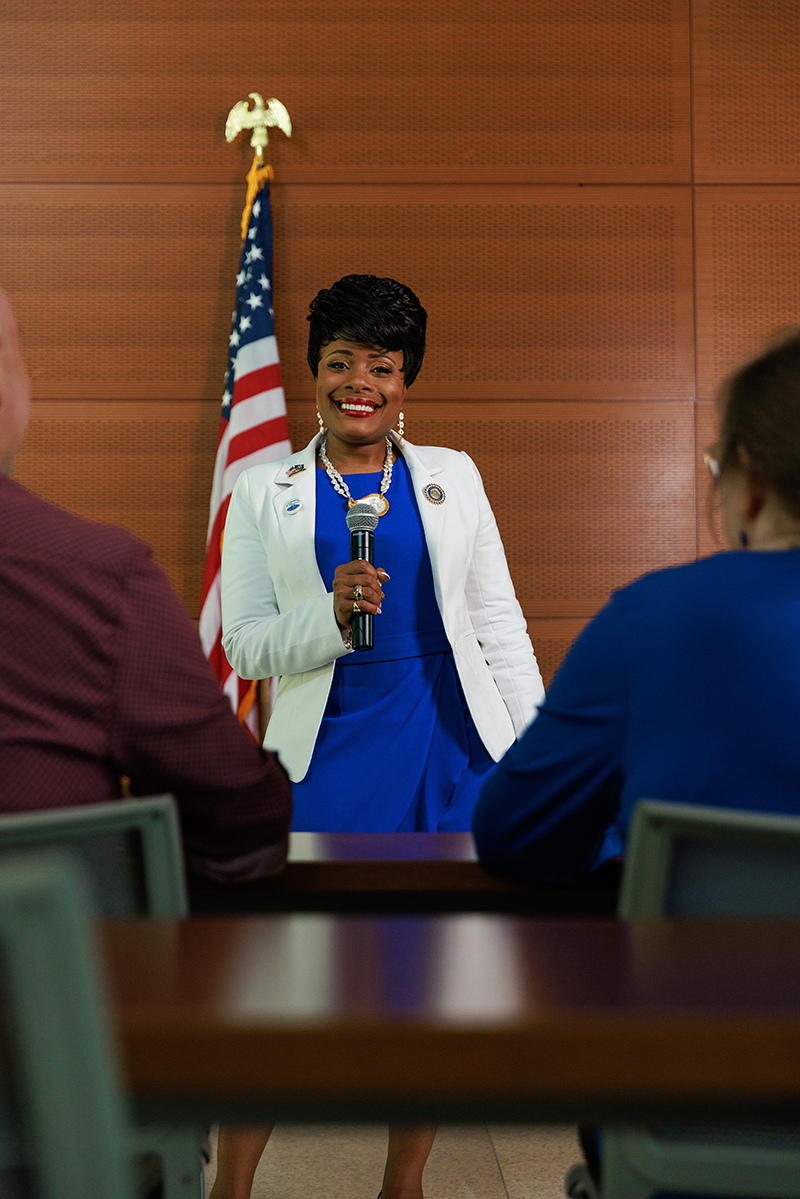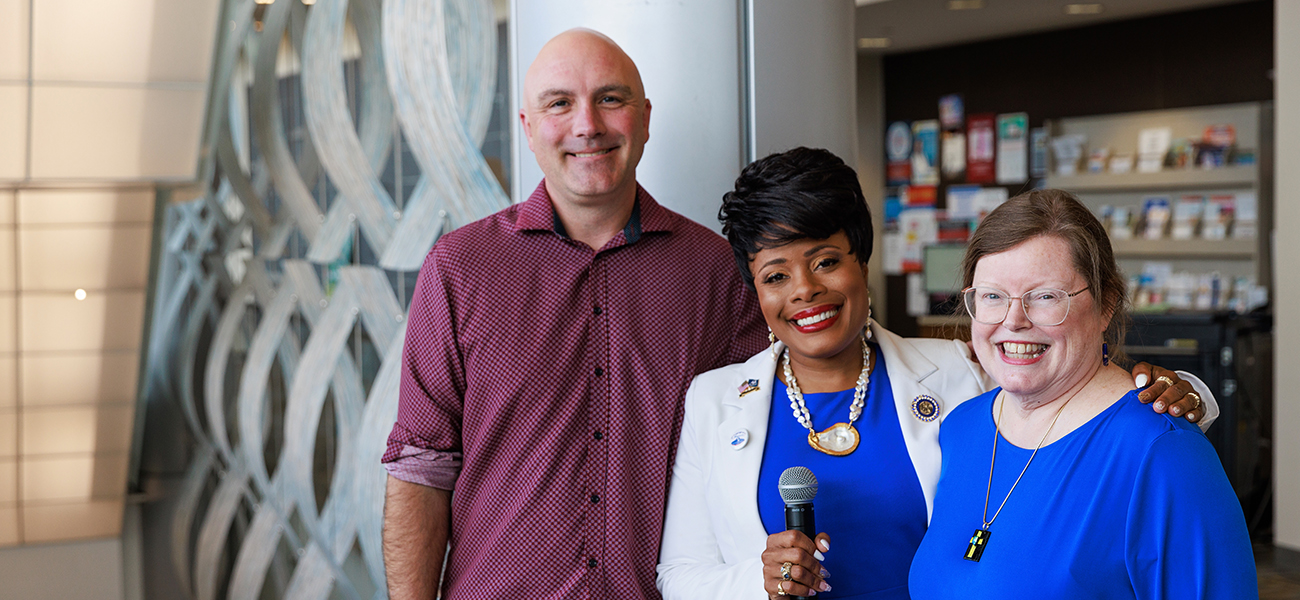
America My Oyster is expanding to bring more equity training to BR
In the years before she founded the local nonprofit America, My Oyster Association in 2016, Bea Gyimah was watching her passion take form in the words of her students.
As a Baton Rouge Community College professor of English with a focus on multicultural literature, Gyimah had founded clubs for students who wanted to pursue their passions for diverse cultures outside the classroom. One such project was the My America, Your America, Our America writers project, in which a group of students, under Gyimah’s direction, published two editions of a race and ethnic studies journal of essays and poetry in 2013 and 2015.
Following the project’s success, Gyimah says she received much cheers and congratulations from the students and their parents for the passion and strength she demonstrated. But folded into the praise was a suggestion that, in order for her to continue doing the work, she should build a vehicle for it that was wholly her own.
|
|
That’s precisely what Gyimah did in founding the America, My Oyster Association, or AMOA, a nonprofit that promotes multicultural awareness and teaches on diversity, equity and inclusion through a variety of programs.
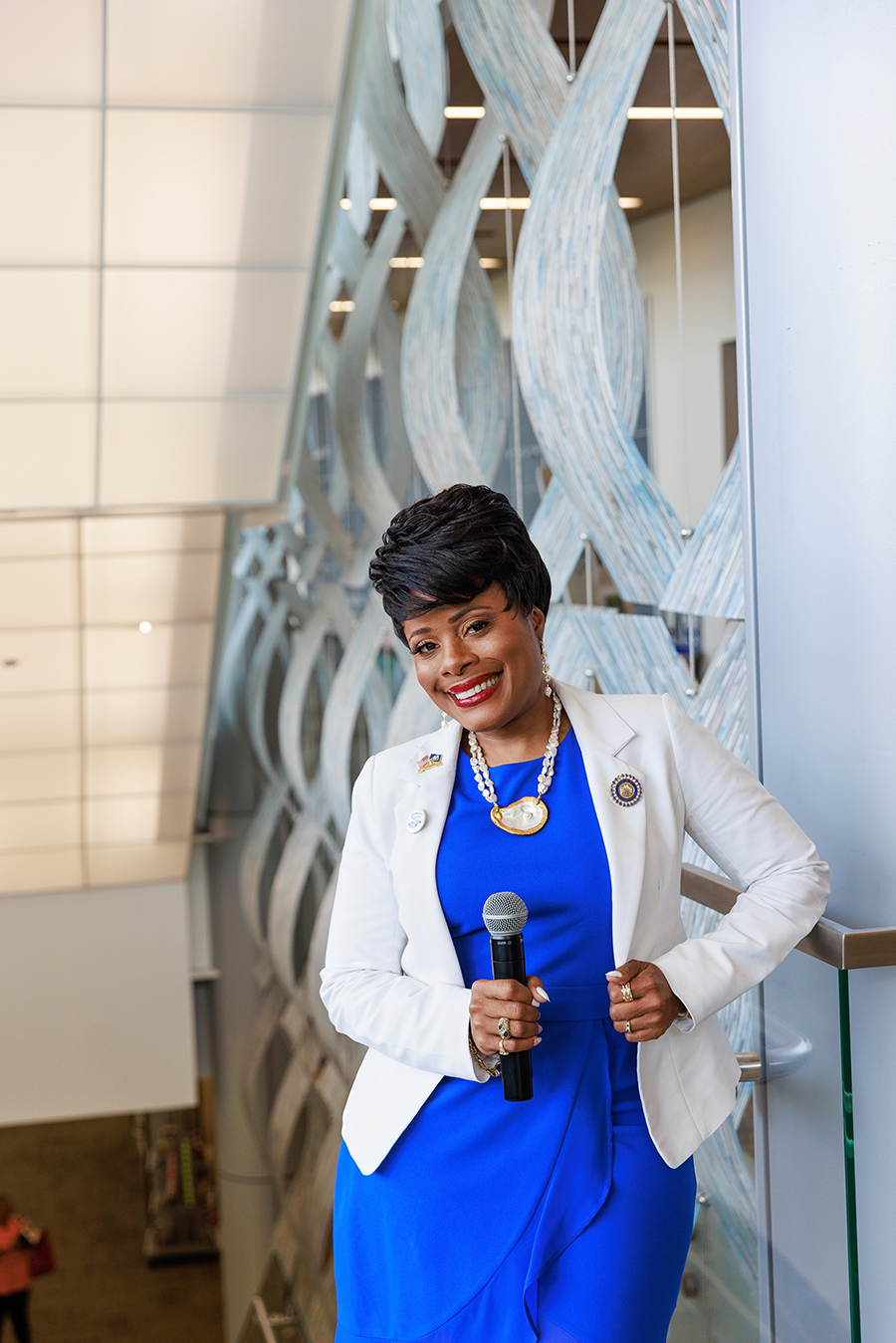
“Everything that I did at BRCC, in a way, culminated or came together in some way (in) what I seek to do with the America, My Oyster Association,” Gyimah says.
In its early days, the group began by jumping into the local cultural network: Any heritage celebration that Gyimah caught wind of, from Juneteenth events to the former Festival Latino, AMOA would be there, either volunteering or presenting.
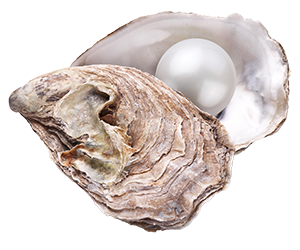
America My Oyster draws its name from the old expression, “the world is your oyster.” The moniker affirms that America should be a vessel of opportunity for all who live here, says founder Bea Gyimah. It also derives from an excerpt of Zora Neale Hurston’s essay “How it Feels to be Colored Me,” in which she writes, “I am not tragically colored. … No, I do not weep at the world—I am too busy sharpening my oyster knife.”
But what AMOA is perhaps best known for these days is its diversity, equity and inclusion (DEI) training program, called Building a Better America Today with AMOA. Working with the East Baton Rouge Parish Library system, Gyimah designed a curriculum of courses that learners—from middle school students to college graduates and “lifelong learners”—can take online and at their own pace.
“It’s not enough for the students who go through AMOA to be inspired to excel academically,” Gyimah says. “We want them to be better people.”
First launched in May 2021, the program is available for free to anyone with an active EBR Library card. The curriculum is segmented into multiple tracks for learners at different stages of their education, with courseloads rising proportionately to the level of schooling.
All participants must take two core classes: a course on communicating with empathy and one on unconscious bias. From there, they can choose to take additional courses, like a “diversity deep dive” and a course on allyship. At the end, they land in one of three tiers of graduates: Supporter of Diversity, Diversity Advocate or Diversity Champion.
“Those courses make you think,” says Ursula Holmes, a friend and former student of Gyimah who signed up her three children for the DEI courses after completing them herself.
“I made my children do it, because it works. The program works,” Holmes says. “And then it gets you to open your mind to how you treat people (and) how people treat you.”
In 2022, AMOA graduated 60 participants from the DEI training program. Gyimah has also adapted the course material for corporate training sessions that she has presented to six local organizations and companies, like the Walmart Supercenter in Baker and Louisiana Workers’ Compensation Corporation.
AMOA also incorporates Gyimah’s passion for education with programs like Channeling the Motivation to Excel in College and Beyond, in which high school students attended speeches and workshops on academic motivation and also received scholarships and school supplies.
“We wanted students to embrace multiculturalism, and to embrace multicultural education,” she says. “But we wanted them to embrace what was already in front of them, which was the pursuit of their education, whether in high school or college.”
The AMOA umbrella continues to grow. Other projects include a previous STEM summer reading program for elementary students, a “Community Connections” speaker series and collabs with cultural groups and service organizations.
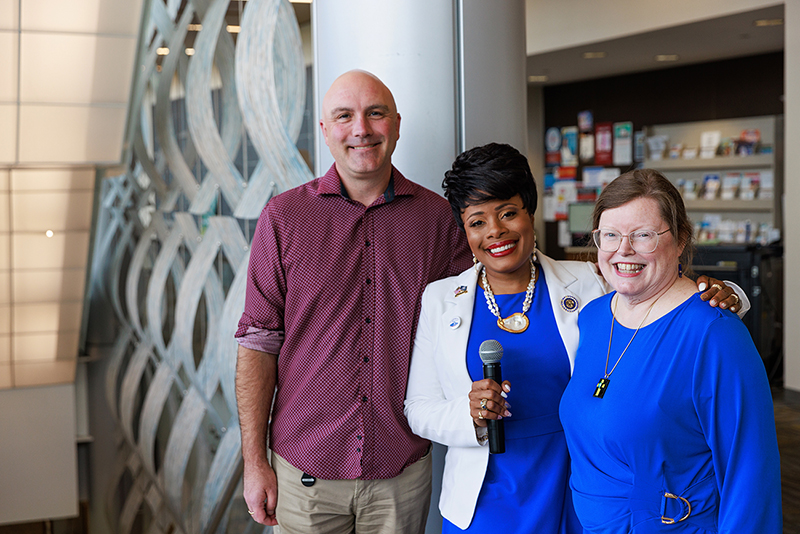
Turning an eye to the future, Gyimah says AMOA will be expanding its current DEI program with a new Diversity Ambassadors Academy. Participants who completed the DEI program in 2022 will receive further training this fall in leadership development, peer-to-peer counseling, and then will serve as “ambassadors” to help promote AMOA programs in 2024.
“We want them to realize the greatest investment they will make is in themselves,” Gyimah says. “And with making the right investments in themselves, they have an awareness of how they can, in positive ways, invest in others.”
And the most crucial investment, the skill that is the “cornerstone” for any meaningful education, Gyimah says, is empathy.
“Empathy is the source for it all,” she says. “I realized that one of the greater ways to promote multicultural awareness is simply to promote empathy and kindness.” theamoa.org
This article was originally published in the July 2023 issue of 225 magazine.
|
|
|
